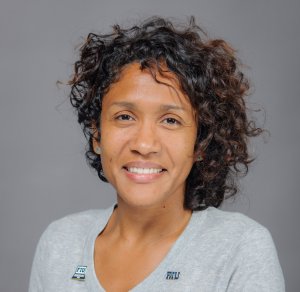Cultural/Diversity
Cracking the diversity code: Understanding computing pathways of those least represented in order to foster their representation
This event is free and open to the publicClick here to RSVPAdd to Google Calendar

There is a significant knowledge gap regarding factors that influence the participation of Black and Hispanic women in computer science, and Dr. Ross has engaged in research to address this gap. She works to critically examine efforts and initiatives that aim to broaden participation in computer science by listening to voices of individuals who are often unheard. The outcomes of Dr. Ross’ research have the potential to reshape the community’s perceptions of what and who are computer scientists, and as well as to crack the code to diversifying this lucrative and impactful discipline. This talk will describe Dr. Ross’ research journey and will present preliminary results.
BIOGRAPHICAL SKETCH: Monique Ross, Assistant Professor in the School of Computing & Information Sciences and in the STEM Transformation Institute at Florida International University, earned a Ph.D. in Engineering Education from Purdue University. She has a B.S. degree in Computer Engineering from Elizabethtown College, an M.S. degree in Computer Science & Software Engineering from Auburn University, eleven years of experience in industry as a software engineer, and four years of experience as a full-time faculty member in computer science and engineering. Dr. Ross’ interests focus on broadening participation in computing through the exploration of: 1) race, gender, and identity in the academy and industry; and 2) discipline-based education research (with a focus on computer science and computer engineering courses) in order to inform pedagogical practices that garner interest and retain women and minorities in computer-related engineering fields. She was awarded the prestigious NSF CAREER award, and she uses her scholarship to challenge the perceptions of who belongs in computing.
 MENU
MENU 
